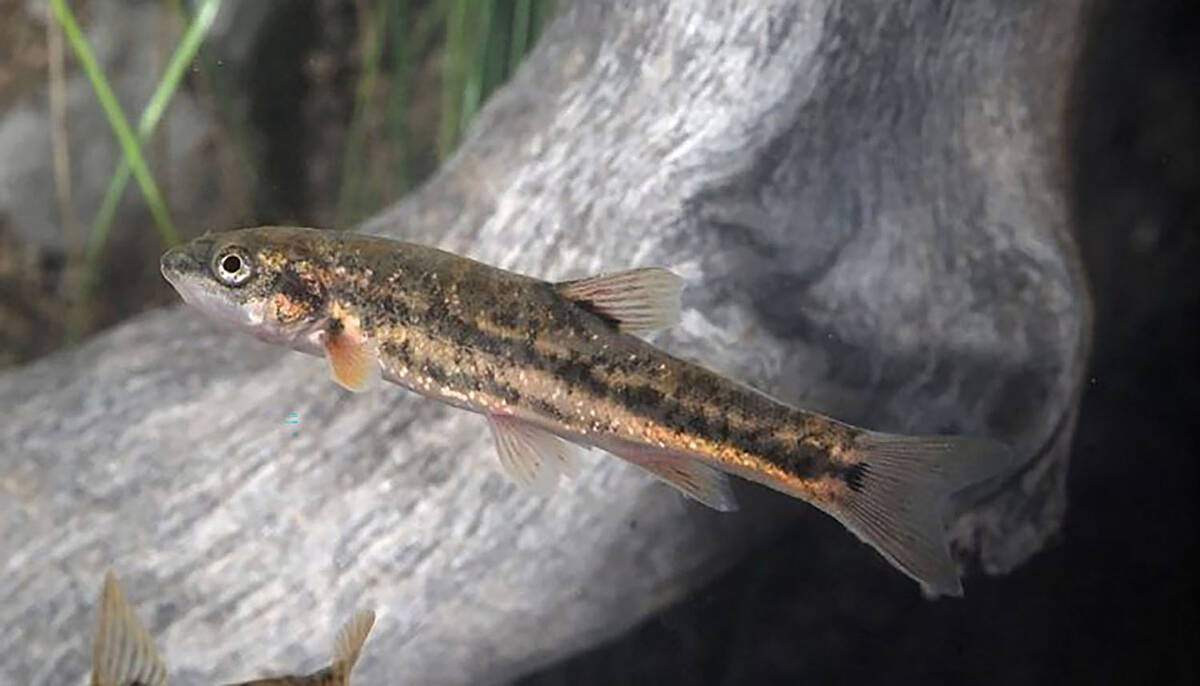New report declares Florida’s 350-mile coral reef system ‘functionally extinct’ – WEAR-tv

Report on the Ecological Devastation of Florida’s Coral Reefs and its Impact on Sustainable Development Goals
Executive Summary
A recent scientific study has documented catastrophic losses within Florida’s coral reef system, directly attributable to unprecedented ocean heatwaves in 2023. This ecological disaster represents a significant setback for multiple United Nations Sustainable Development Goals (SDGs), particularly SDG 14 (Life Below Water) and SDG 13 (Climate Action). The functional extinction of key coral species threatens marine biodiversity, coastal resilience, and local economies, highlighting the urgent need for integrated global action on climate and conservation.
Key Findings of the Scientific Assessment
A study conducted by a team of 46 researchers and published in “Science” detailed the extent of the damage to Florida’s 350-mile reef system. The primary findings include:
- Record-breaking ocean temperatures, exceeding 90 degrees Fahrenheit for nearly three months in the summer of 2023, caused mass coral bleaching and mortality.
- Crucial reef-building species, including elkhorn and staghorn corals, are now considered “functionally extinct” in the region.
- By March, mortality rates for coral colonies in the southern reef reached between 98% and 100%.
- The remaining coral fragments are at densities too low to sustain a functional reef ecosystem.
Direct Impact on SDG 14: Life Below Water
The devastation of the Florida reef is a direct failure to meet the targets of SDG 14, which aims to conserve and sustainably use the oceans, seas, and marine resources.
- Target 14.2 (Protect and restore ecosystems): The event marks a catastrophic failure in protecting a vital marine ecosystem, leading to its functional collapse rather than restoration.
- Target 14.5 (Conserve coastal and marine areas): The loss of one of the most significant reef systems in the United States undermines efforts to conserve critical marine areas.
- Target 14.a (Increase scientific knowledge): While the study enhances scientific knowledge, its findings confirm the extreme vulnerability of marine life to environmental stressors, indicating that current conservation strategies are insufficient.
Causal Factors and Link to SDG 13: Climate Action
The root cause of the coral mortality event is extreme ocean heat, a direct consequence of climate change. This underscores the profound connection between marine ecosystem health and the global community’s progress on SDG 13.
- Target 13.1 (Strengthen resilience and adaptive capacity to climate-related hazards): The reef’s collapse demonstrates a critical lack of resilience to climate-related disasters, showing that natural systems are being pushed beyond their adaptive capacity.
- Target 13.2 (Integrate climate change measures into policies and planning): This disaster serves as a stark indicator that current climate change mitigation policies are inadequate to prevent irreversible ecological damage.
Socio-Economic Consequences and Relevance to Other SDGs
The loss of the coral reef has cascading effects on human communities, impacting economic stability and community safety, thereby affecting additional SDGs.
- SDG 11 (Sustainable Cities and Communities): Healthy reefs act as natural barriers, protecting coastal communities from storm surges. Their degradation increases the vulnerability of Florida’s coastal cities and infrastructure to extreme weather events.
- SDG 8 (Decent Work and Economic Growth): The reef system supports significant economic activity through tourism, recreation, and fisheries. Its collapse threatens thousands of jobs and jeopardizes the sustainable economic growth of the region.
Sustainable Development Goals (SDGs) Addressed
The article highlights issues that are directly connected to the following Sustainable Development Goals:
- SDG 13: Climate Action – The core issue identified in the article is the “extreme ocean heat” and “record-breaking ocean temperatures” that caused the coral bleaching. This directly links the destruction of the reef to the broader impacts of climate change.
- SDG 14: Life Below Water – The article’s central theme is the “catastrophic losses” of Florida’s coral reefs, a critical marine ecosystem. It discusses the death of coral colonies and the functional extinction of key species, which falls squarely under the goal of conserving and sustainably using marine resources.
Specific SDG Targets Identified
Based on the article’s content, the following specific targets can be identified:
SDG 13: Climate Action
- Target 13.1: Strengthen resilience and adaptive capacity to climate-related hazards and natural disasters in all countries. The article demonstrates a failure to meet this target, as the coral reefs lacked the resilience to survive the climate-related hazard of an extreme marine heatwave, leading to “a level of destruction unmatched in the reef’s history.”
SDG 14: Life Below Water
- Target 14.2: By 2020, sustainably manage and protect marine and coastal ecosystems to avoid significant adverse impacts, including by strengthening their resilience, and take action for their restoration in order to achieve healthy and productive oceans. The article explicitly details the failure to protect this marine ecosystem, citing that “98% to 100% of coral colonies in the southern reef had died,” indicating a significant adverse impact.
- Target 14.a: Increase scientific knowledge, develop research capacity and transfer marine technology… in order to improve ocean health. The article itself is based on a “study published Thursday” by a “team of 46 researchers,” which represents an effort to increase scientific knowledge and understand the health of the ocean and its ecosystems.
Indicators for Measuring Progress
The article mentions or implies several indicators that can be used to measure progress (or lack thereof) towards the identified targets:
Indicators for SDG 13 (Climate Action)
- Ocean Temperature Records: The article states that “water temperatures reached over 90 degrees for nearly three months straight– marking the hottest ocean temps in at least 150 years.” This serves as a direct indicator of the increasing severity of climate-related hazards (Target 13.1).
Indicators for SDG 14 (Life Below Water)
- Coral Bleaching and Mortality Rate: A primary indicator is the percentage of coral loss. The article provides a stark metric: “98% to 100% of coral colonies in the southern reef had died.” This directly measures the health and viability of the marine ecosystem (Target 14.2).
- Status of Keystone Species: The classification of “elkhorn and staghorn corals” as “functionally extinct” is a critical indicator of ecosystem collapse and biodiversity loss within the marine environment (Target 14.2).
- Scientific Research Output: The existence of the “study published Thursday” by a large team of researchers is an indicator of scientific activity and capacity focused on ocean health (Target 14.a).
SDGs, Targets, and Indicators Analysis
| SDGs | Targets | Indicators |
|---|---|---|
| SDG 13: Climate Action | 13.1: Strengthen resilience and adaptive capacity to climate-related hazards. | Record-breaking ocean temperatures (over 90 degrees for nearly three months); “Catastrophic losses” and “unmatched” level of destruction indicating low resilience. |
| SDG 14: Life Below Water | 14.2: Sustainably manage and protect marine and coastal ecosystems. | Mortality rate of coral colonies (98% to 100% in the southern reef); Conservation status of key species (elkhorn and staghorn corals becoming “functionally extinct”). |
| 14.a: Increase scientific knowledge and research capacity. | Publication of a scientific study by a team of 46 researchers on the state of the coral reef. |
Source: weartv.com
What is Your Reaction?
 Like
0
Like
0
 Dislike
0
Dislike
0
 Love
0
Love
0
 Funny
0
Funny
0
 Angry
0
Angry
0
 Sad
0
Sad
0
 Wow
0
Wow
0

















































































